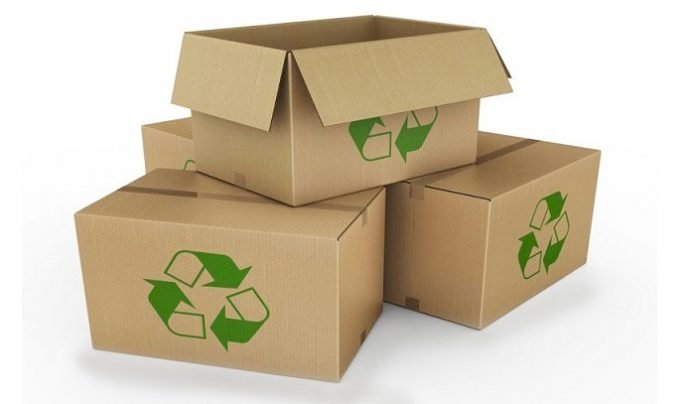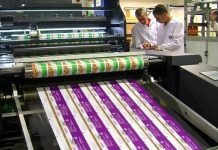Sustainable packaging will boost apple sales this fall for Michigan apple sales alliance, BelleHarvest and Michigan Fresh Marketing.
Angela Sommers, the marketing director for BelleHarvest, which is an apple grower-packer-shipper based in Belding, MI, said consumer demand is moving steadily toward sustainable packaging.
This fall the sales organization is offering their customers the option of receiving apples in 100-percent recyclable paper-based material for three-pound consumer containers of Honeycrisp, Fuji, and Gala varieties. The three varieties are packed in earth-tone colored consumer cartons, each of which is marked: “A Healthy Snack in an Earth Friendly Pack.”
The cartons have a handle for “grab and go” convenience. “This is in line with what people want today, as far as getting in and out of a store quickly,” Sommers said. “I am really pleased to offer this different way to pack and merchandise apples. This is a new option in the apple category. Trees, unlike other resources, are a renewable resource. “The paperboard carton can easily break down and it’s fiber can be reused, whereas poly bags can take over 100 years to bio-degrade. That is pretty alarming.”
In general surveys, she said that 69 percent of consumers indicate a preference for paper-based over plastic packaging. That said, Sommers noted that many retailers and consumers still prefer single-use poly-bags for apples.
“We want to lessen the amount of unnecessary plastic packaging. We understand it’s still a part of the business, but we want to offer an alternative, as we take steps toward protecting our planet.”
“I am very happy to see the crop we have out there,” Sommers said in late July, having toured apple orchards of BelleHarvest and Michigan Fresh-affiliated growers. Temperatures in the mid-20s early in May concerned Sommers and her industry. But “thankfully, at that fruit stage, the temperatures weren’t critical.”
This is especially true given that BelleHarvest and Michigan Fresh growers have invested large amounts of money in frost fans, which stir the air on cold nights, to avoid having frost set on the trees. This spring brought a classic demonstration of a return on investment with a simple, but expensive technology.
Sommers said Belleharvest and Michigan Fresh expect about 90 percent of a normal crop in 2020.
“Our Red Delicious production is down, but we were less optimistic in early June. The more we look, the more surprised we are by the crop that is there.”
Sommers said her growers are slowly replacing Red Delicious with more popular varieties. The largest-volume apple varieties now shipped by Belleharvest and Michigan Fresh are: Gala, Fuji, and Honeycrisp. She said data has shown that these three varieties account for nearly 57 percent of market share in retail apple sales.
Sommers’ growers have new fruit-bearing surface of these varieties approaching maturity. “These are the varieties consumers are purchasing,” she underscored.

























